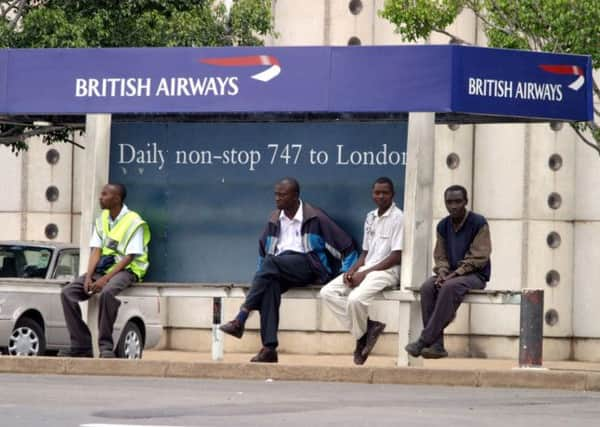Leaders: Protecting Kenyans | Utility culture


Fortunately for those British holidaymakers arriving safely back from the Kenyan resorts from which they were evacuated, it seems this time that advance intelligence was right and that the al-Shabab terror group was bent on further atrocities.
The fact that bombs have gone off in Nairobi, about 250 miles west of Mombasa, which was believed to be the main target, does not mean that the intelligence was wrong or that the evacuation was unnecessary. The source may well have been an informant who knew very little of al-Shabab’s plans, but passed on what he did know. This particular wave of terror may not yet be over, and the risk to Mombasa and surrounding areas may still be very real.
Advertisement
Hide AdAdvertisement
Hide AdDisrupted holidays are, however, minor compared to the serious threat that Kenya faces. In pursuit of its grievances against Kenya and its anti-terrorist incursions into Somalia, the al-Qaeda affiliated al-Shabab group is doing serious harm to the country and its people.
It may well judge that publicity surrounding tourist evacuations, and the knock-on effect of deterring others from visiting and spending their money in Kenya, is as effective as exploding a bomb in a resort. It fulfils two of their ideological aims – removing westerners and what it regards as their corrupting influence from east Africa, and weakening the economy, and hence the government, of Kenya.
Poor Kenya. The heart aches for its people. Al-Shabab was responsible for the assault on a Nairobi shopping centre last year, killing 67 people. Earlier this month, bombs exploded on Nairobi buses, killing three and wounding more than 80. Kenyans are being killed and maimed, and if al-Shabab succeeds in making it a tourism no-go area, much of the country’s economic life-blood will be drained too.
Here, there is a question to be answered. Initial reports suggest that Kenyan authorities are affronted that the relevant intelligence was shared among the British, French, Australian, and American agencies, but not passed on to them. If so, they have a reason to be angry that intelligence which might have helped them protect their own citizens was not shared with them.
There may be a reason for that, such as suspected infiltration of Kenyan security services. Nevertheless, defeating terrorism requires international co-operation, and while every government’s first duty is to their own people, what has happened here could easily be interpreted as meaning that western governments regard Kenyan lives as less important.
Such opinions should not be given succour. Only when Kenyans feel safe can visitors be safe. In helping to protect Kenyans, western governments are also safeguarding their own people.
Utilities must work to regain trust
The huge fine imposed on E.ON by Ofgem which will see it paying between £15 million and £20 million back to its customers for selling them energy supply contracts which turned out to be bad deals means, quite appallingly, that five out of Britain’s six major energy suppliers have now been penalised by the regulator over the past three years for mis-selling.
If the companies want to know why few customers trust them, Ofgem has now handed out millions of reasons. It is a shocking record, speaking of an industry completely lacking in integrity and seeking to squeeze as much money as possible out of people regardless of whether they can afford it or not.
Advertisement
Hide AdAdvertisement
Hide AdCompetition is supposed to reduce prices, not increase them. In this case, competition between the companies to gain customers seems to have had the perverse result of persuading people to switch supplier in the belief they would get a better deal, only for them to end up paying more.
In E.ON’s case, much of the problem appears to have been with its use of an agency sales force. While Ofgem believes that there was no orchestrated effort by the company’s management to mis-sell, it seems the sales agents were poorly briefed, failing to find out, for example, whether prospective customers were in debt or credit, probably because they were under pressure to meet customer recruitment targets.
The utilities have a lot to do to regain customer trust. Providing more transparency on bills and what people are paying for would be a start. And a concerted effort to show that they do respect customers and aim to treat them decently and honestly would help, too.